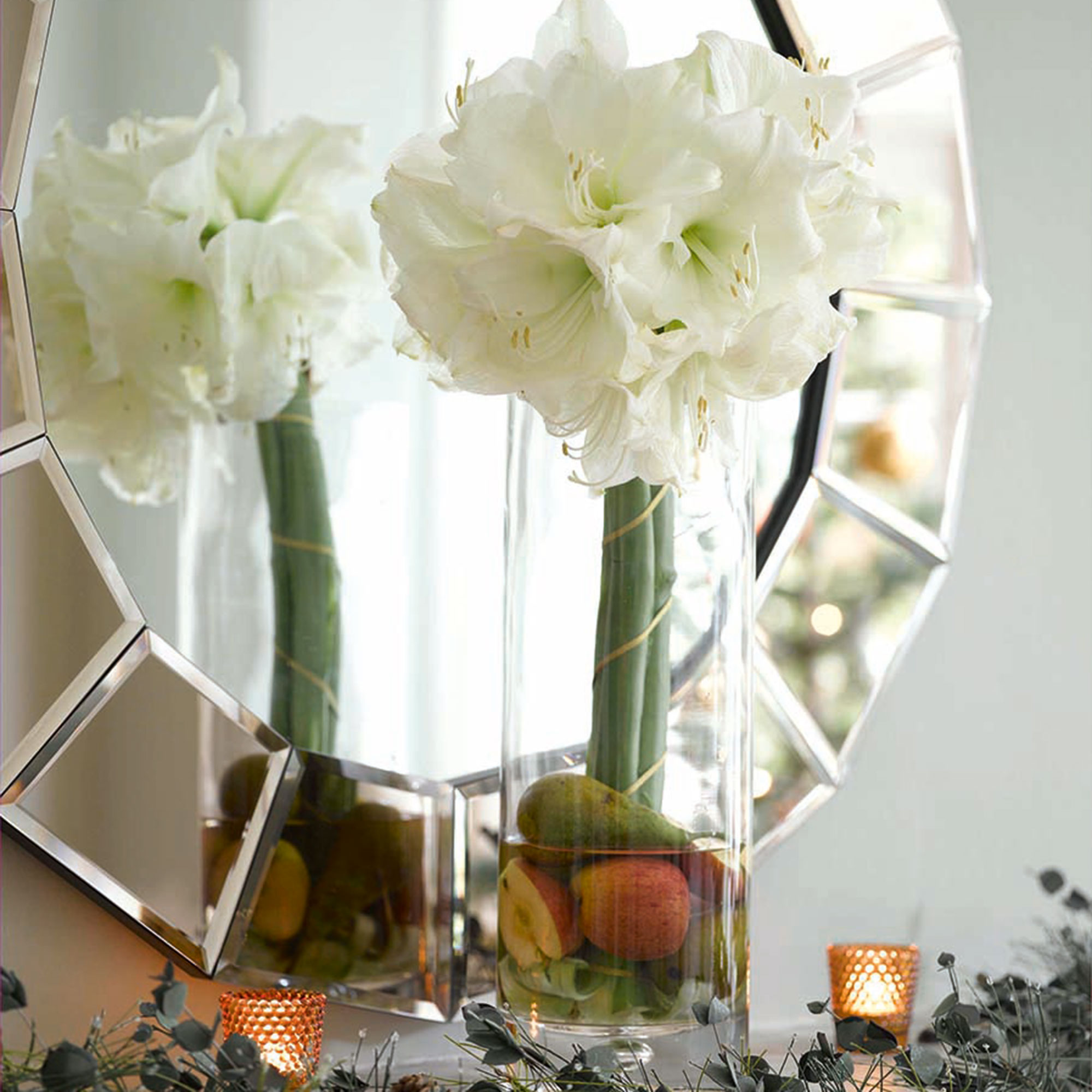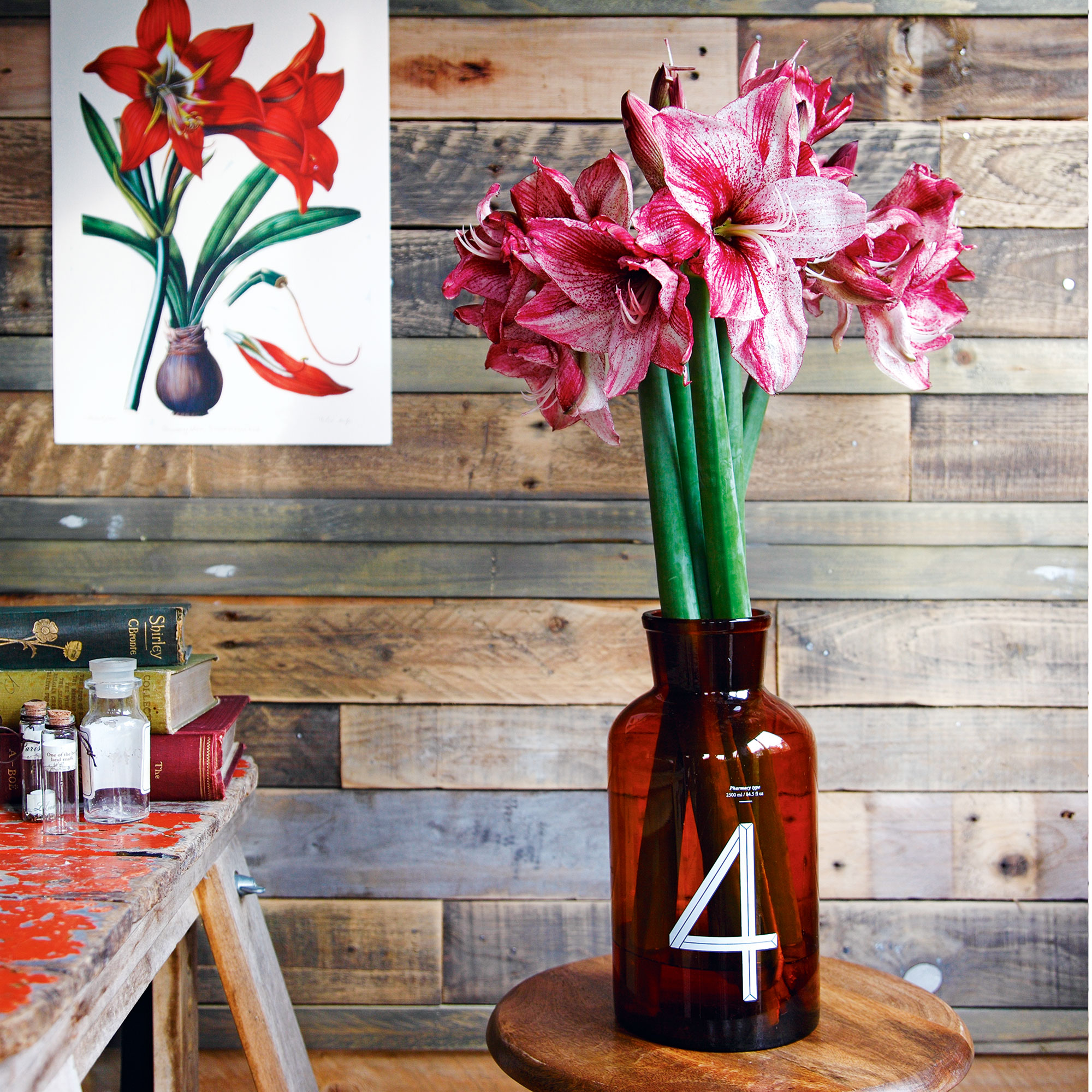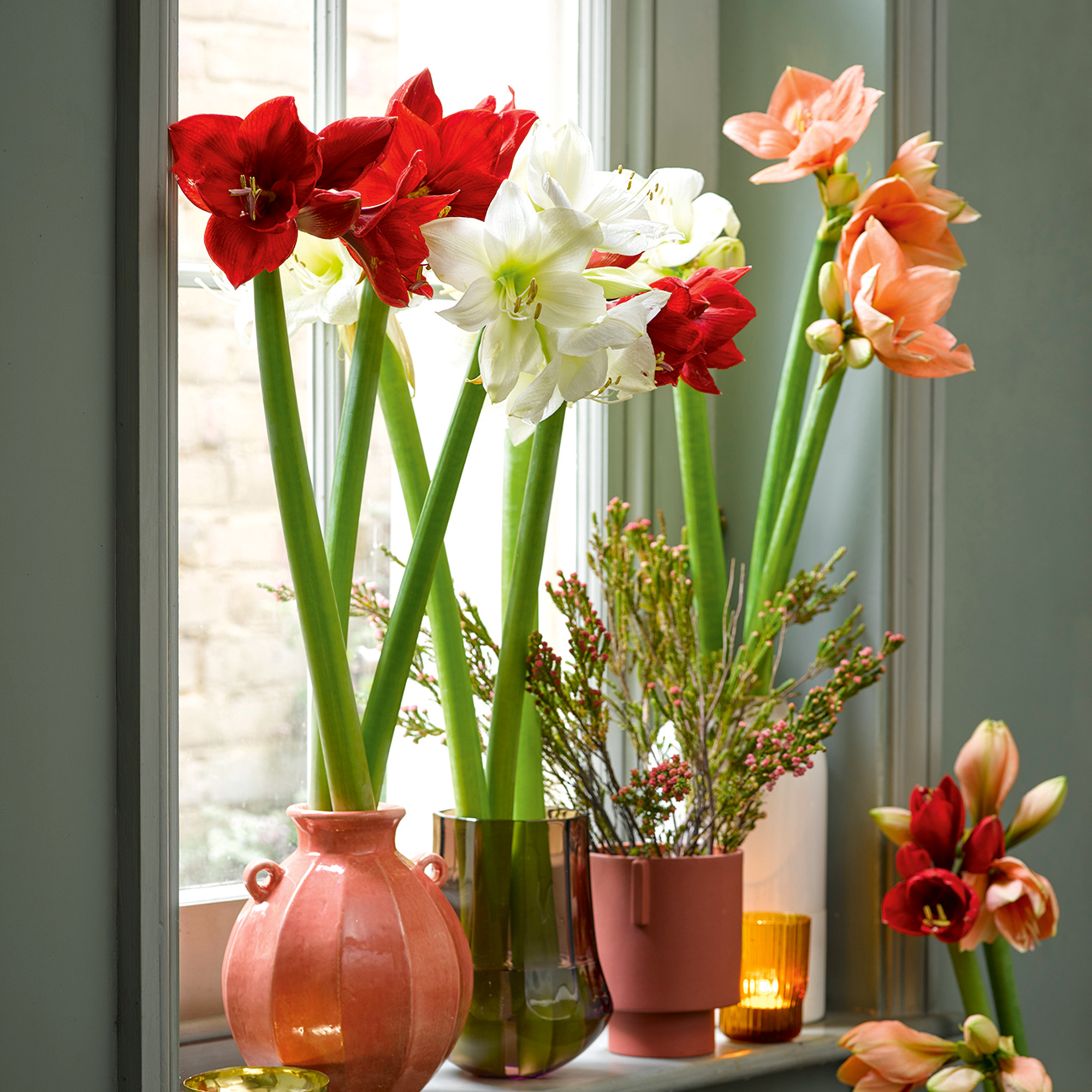
No matter whether you’ve grown your amaryllis from the bulb or you’ve been gifted a fully-fledged plant for Christmas, it’s important to understand how to care for amaryllis to keep it healthy and happy - especially if you want it to continue blooming year after year.
An amaryllis isn't just for Christmas, if you know when to plant an amaryllis bulb and care for it properly it will rebloom again and again for decades. When it comes to caring for it there are two main factors to consider: placement and watering.
How to care for amaryllis
After planting an amaryllis bulb usually takes around six to eight weeks to bloom. After that it should bloom for a good 7-10 weeks, and comeback every single winter - if you treat it properly that is.
These are the steps to follow if you want to keep your plant flourishing for years to come.

1. Place in bright indirect light
Regarding placement, amaryllis prefers to be kept relatively cool, but they do love sunlight and can take up to 6 hours of sun every day. This makes them the perfect plants to grow on a windowsill. However, they prefer indirect sunlight to direct sunlight, so try to avoid opting for a south-facing window with a lot of direct sunlight.
If you're wondering why your amaryllis is not flowering it could be a warning sign that your plant is not getting enough light, so watch out for this to remedy it fast.
2. Plant in well-draining compost
Over-watering amaryllis is extremely easy to do and is one of the main reasons why novice gardeners struggle to keep this plant alive. And while watering is indeed important, you also need to make sure that your plant is prepared for this onslaught of moisture. That’s why amaryllis should be planted in well-draining compost and why you should top your planted bulbs with horticultural grit to help with drainage.
If you’ve bought or been gifted an amaryllis plant from the supermarket, it might be an idea to add some horticultural grit (available on Amazon) to your pots - especially if it didn’t come with it.

3. Support with canes
It’s also important to keep an eye on the growth of your amaryllis, as you may need to support your plant with canes the larger it gets.
4. Repot after it has flowered
Although it’s always a shame when amaryllis stops flowering, that doesn’t mean that it’s the end. Amaryllis will flower year after year when taken care of properly, and the bulb will continue to grow even when it’s no longer flowering.
'After it's flowered, make sure to repot it into a slightly larger pot and use fresh potting mix,' explains Steve Chilton, Gardening Expert and Director of LeisureBench. 'Cut off the flower bud at the base to redirect the plant's energy from seed production. Water the plant well after potting, but allow the soil to dry out between waterings.'
If you wanted to, you could even take your amaryllis plant into the garden or put it in your greenhouse during the summer months. However, you must ensure you keep it out of direct sunlight and keep a regular watering schedule until August. This is when your amaryllis will enter a state of dormancy for a few weeks, so you should stop watering during this period.
Gardening expert Oliver Johnson at HomeAdviceGuide.com says, 'By mid-October, bring the amaryllis back indoors and begin watering again. Flower buds will begin to appear prompted by cool night temperatures and the recent dormancy period.'
Then, simply repeat this process year after year.

FAQs
What do you do with amaryllis after it blooms?
When your amaryllis has stopped blooming, you should transplant it to a slightly larger container before cutting off the spent flowers, but keeping the leaves intact. You can then place your amaryllis outside or in the greenhouse over the summer months.
Safe yourself buying a new amaryllis year after year, and take care of the one you have already.







